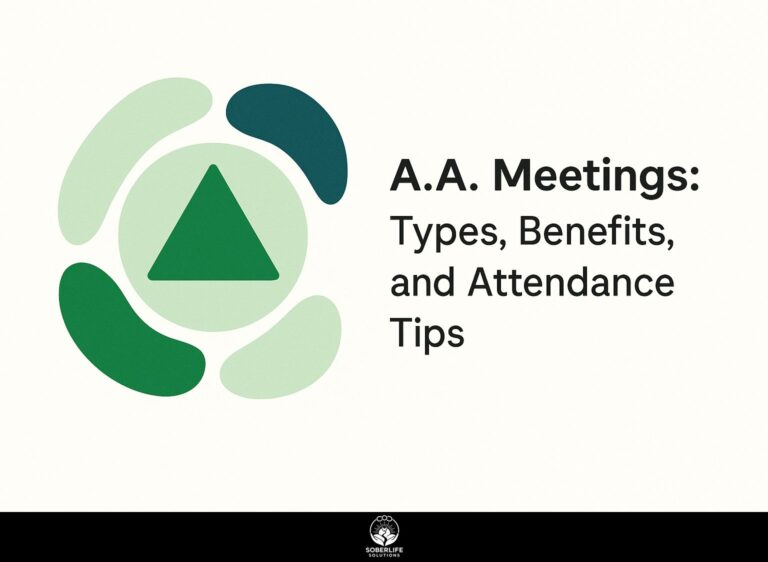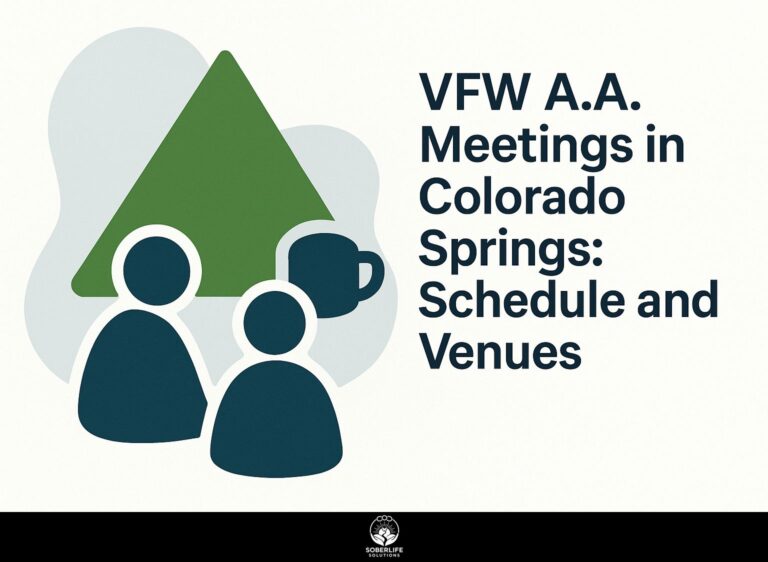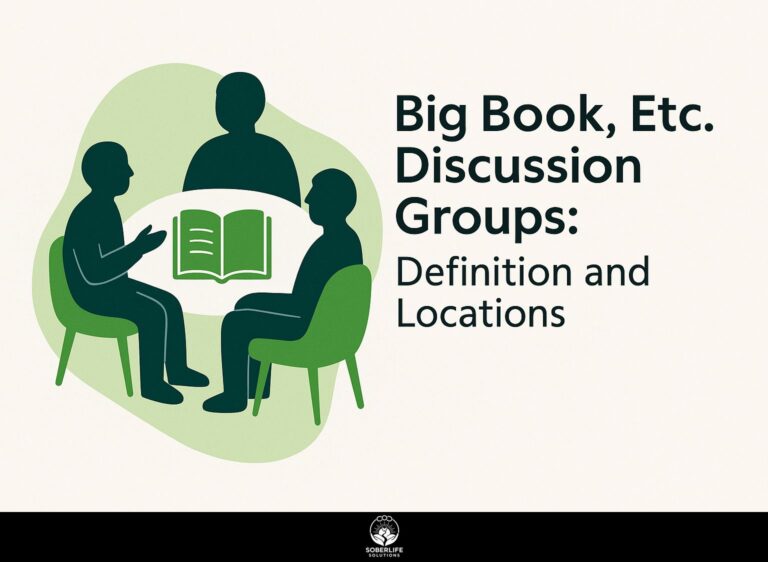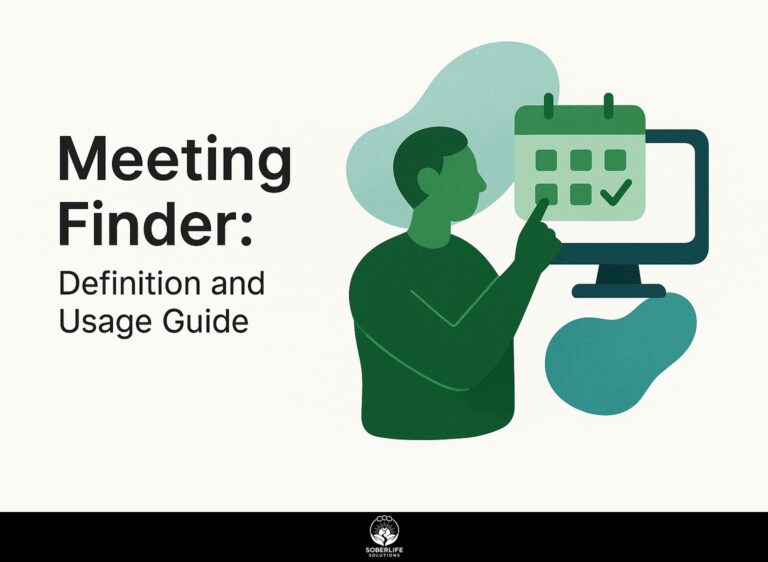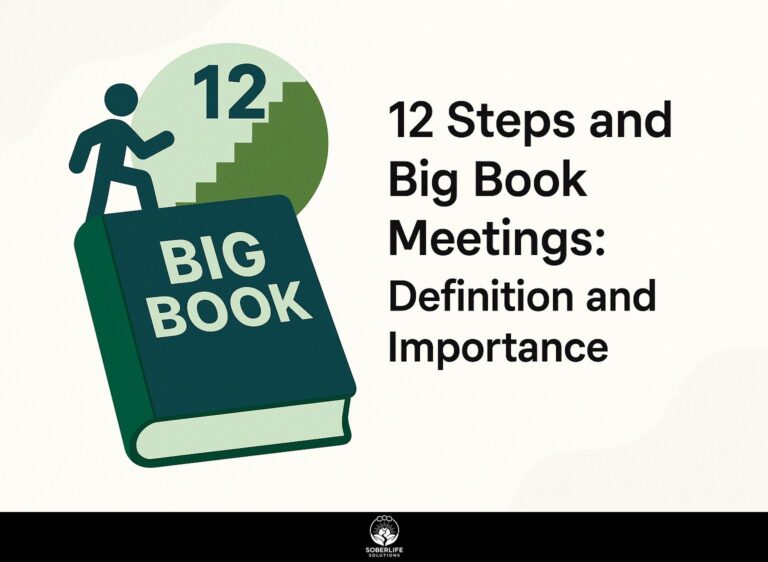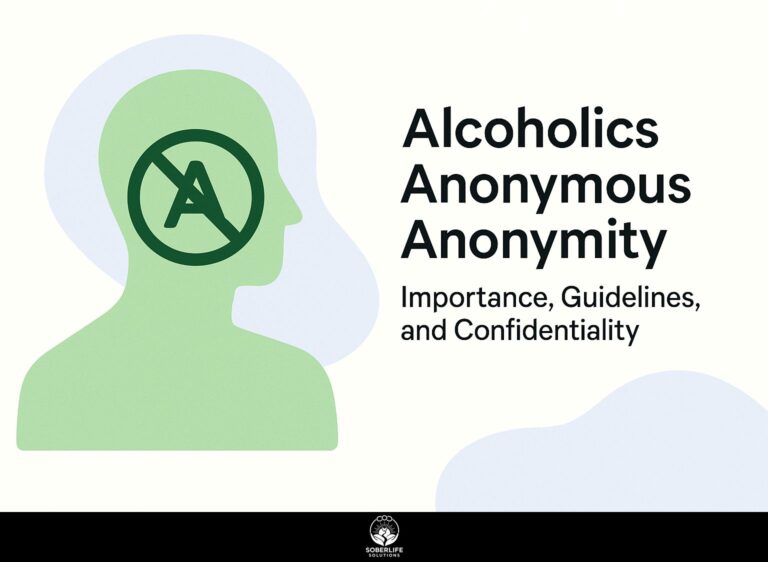How to Stay Connected with A.A. Meetings While Traveling
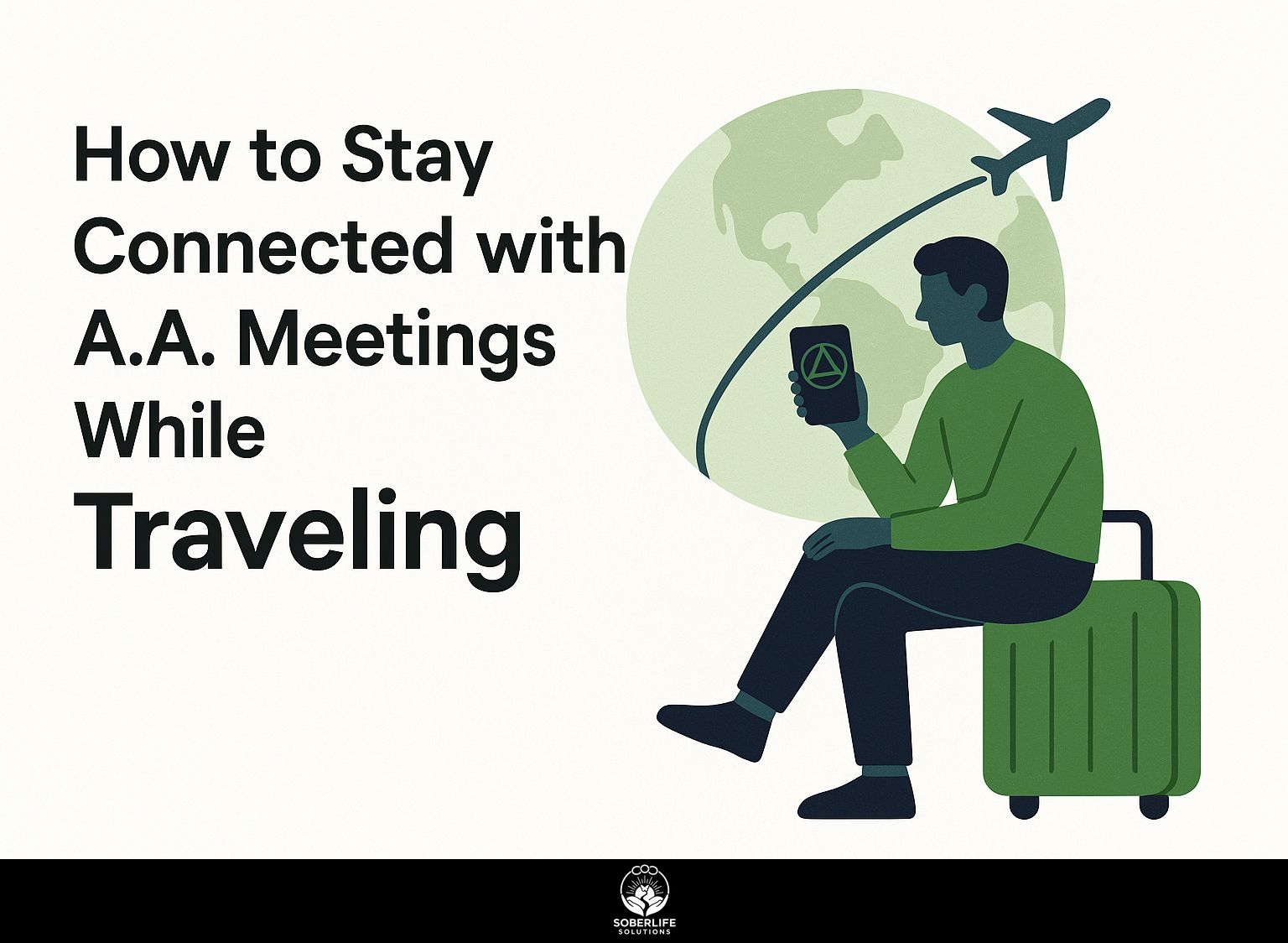
Travel shouldn’t interfere with your sobriety, and attending A.A. meetings is important for your recovery. Whether you’re exploring Minneapolis or venturing elsewhere, Alcoholics Anonymous and Narcotics Anonymous offer resources to help you find support on the road. In this guide, we’ll share practical tips for accessing meetings, utilizing digital tools, and building a support network, ensuring you remain grounded in your recovery, no matter where life takes you.
Key Takeaways:
Utilizing Online Resources
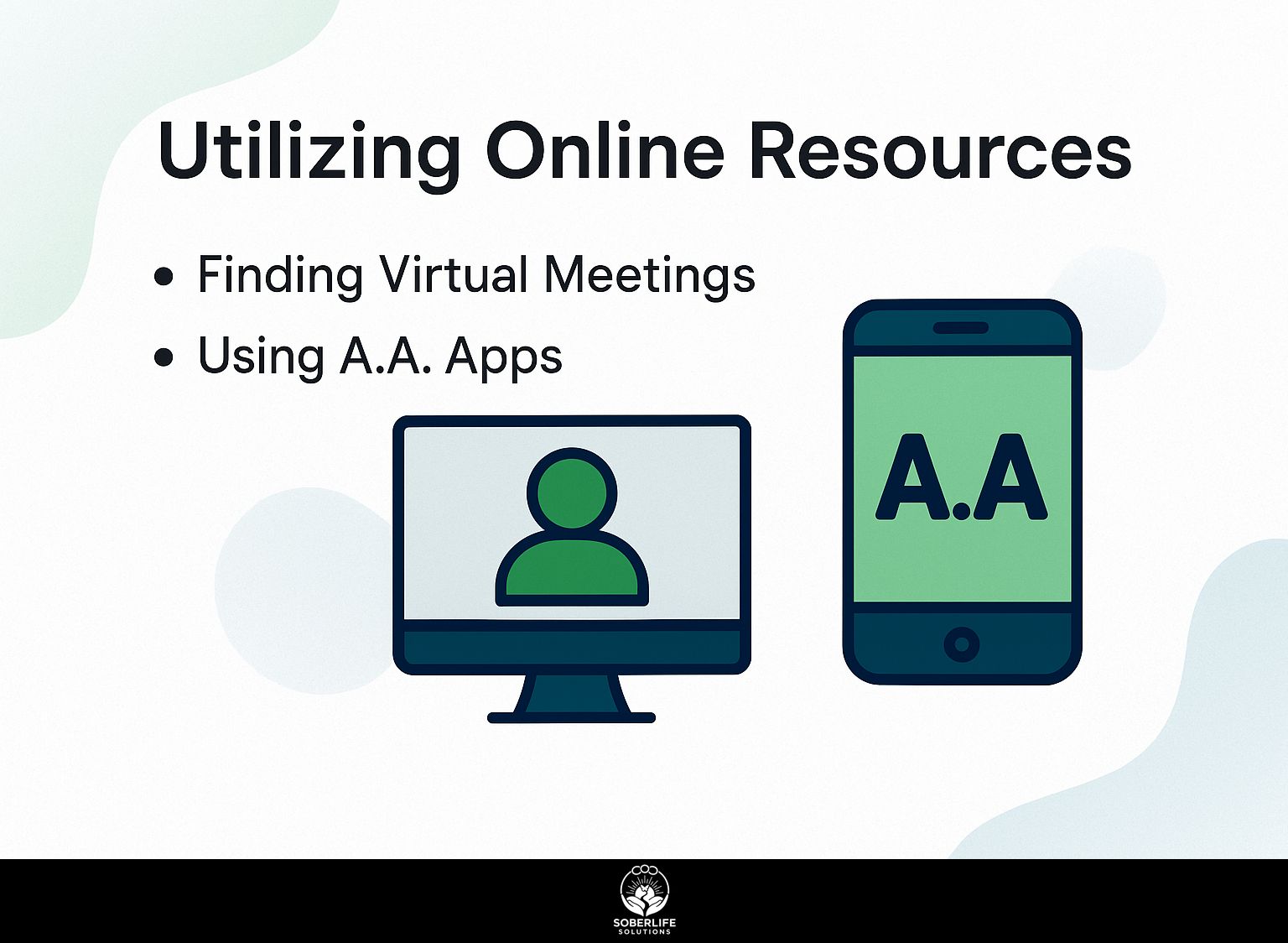
The internet offers different tools that help members connect with A.A. and stay involved while traveling. According to research published in ScienceDirect, digital interventions play a vital role in supporting individuals with alcohol use disorders, making it easier to access resources remotely. One effective tool that members can utilize is the AA Meeting Guide App, which offers features that simplify finding nearby meetings and staying connected to the community.
Finding Virtual Meetings
It’s easy to find virtual A.A. meetings using platforms such as Zoom and Meeting Guide, which list many online sessions around the globe.
To locate meetings, start by visiting the official A.A. website, where you’ll find a directory of virtual sessions by region.
Apps like Meeting Guide and iSobriety offer real-time updates and user-friendly interfaces for easy access. Many meetings are donation-based, promoting inclusivity.
To make your search better, think about joining Facebook groups or subreddits focused on sobriety; members often share links to upcoming meetings. This approach can help you stay connected and supported as you recover.
Using A.A. Apps
Apps such as Sober Tool and I Am Sober offer features that support daily recovery efforts, tracking sobriety and connecting with others.
Another helpful app to consider is the 12 Steps App, which offers classic recovery books.
Sober Tool provides daily advice that keeps users motivated to remain sober.
Meanwhile, I Am Sober emphasizes community support, allowing individuals to share milestones and challenges with others.
These smartphone tools make it simpler to monitor sobriety and receive support, helping you stay focused and driven at all times. Additionally, if you’re concerned about protecting your data while using these apps, Macworld highlights several reliable iPhone data recovery options that can safeguard your information.
Connecting with Local A.A. Groups
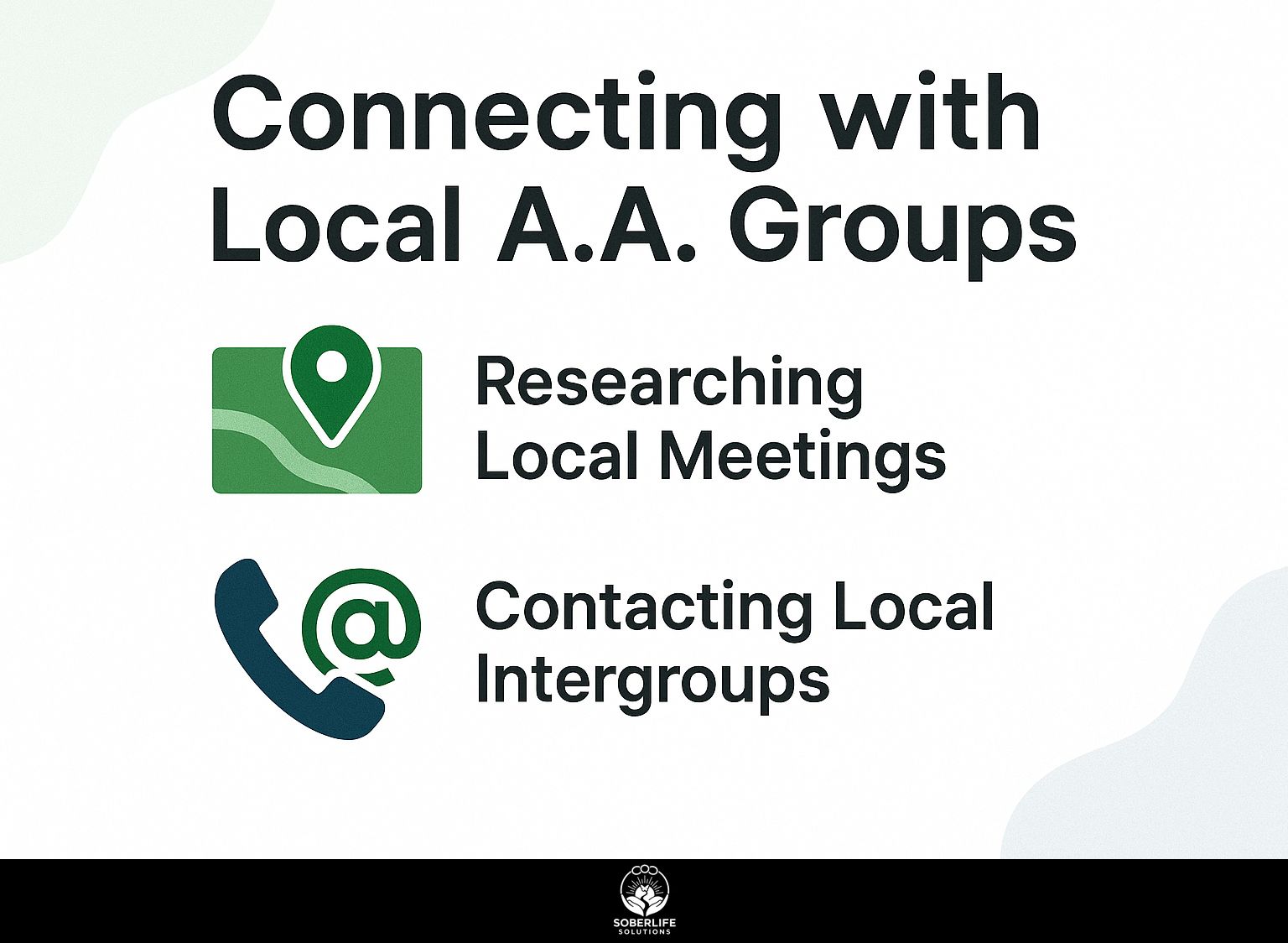
Joining local A.A. groups improves the recovery process by building face-to-face support systems when away from home. The Mayo Clinic highlights how these support groups can facilitate meaningful connections and provide essential help to individuals in recovery ( read more from Mayo Clinic). Learn more about what to expect at your first meeting-knowing the format and purpose can enhance the experience and provide comfort from the outset. What to expect at your first A.A. meeting can offer invaluable insights.
Researching Local Meetings
Use online tools such as Google Maps and the A.A. website to locate meetings close to you.
Start by visiting the A.A. website’s meeting locator, where you can enter your city and state to access a list of meetings.
You can use Google Maps to search for ‘A.A. meetings near me,’ which provides real-time locations and directions.
For even more convenience, download the Meeting Guide app, available on both iOS and Android, which offers up-to-date meeting schedules and locations.
It’s advisable to call ahead to verify meeting times, as they can sometimes change unexpectedly.
Contacting Local Intergroups
Reaching out to local A.A. intergroups can provide additional resources and information about nearby meetings and events.
Many cities, such as Minneapolis, have active A.A. intergroups that provide important support systems. For example, you can reach the Twin Cities Intergroup through their website or phone number. They provide details about local meetings and recovery workshops.
When you connect, ask about community activities like social events or volunteer work, which can improve your recovery experience. Participating in these activities builds relationships and offers help while you go through your experience.
Staying Engaged with A.A. Literature
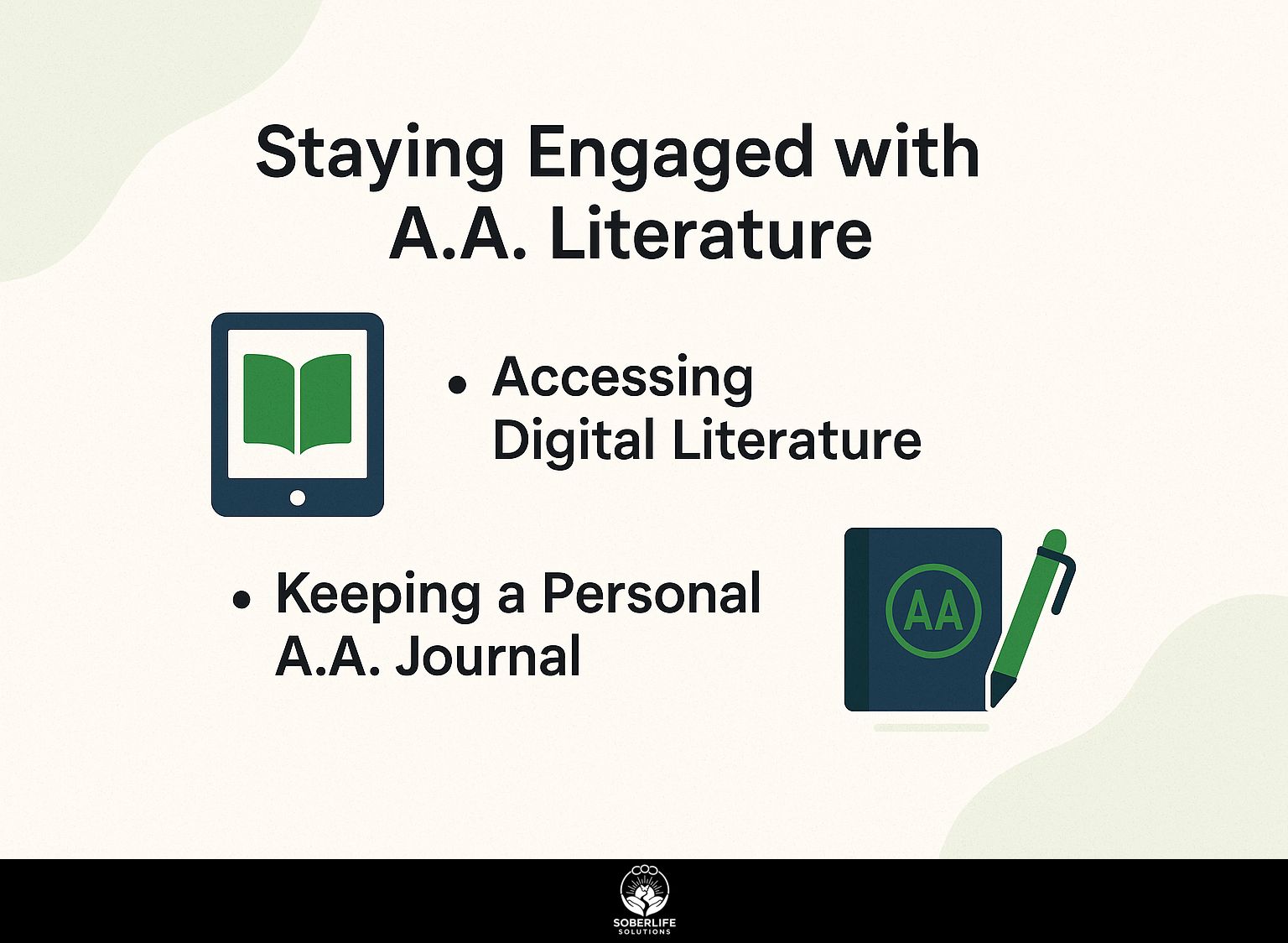
Reading A.A. literature can help solidify recovery concepts and provide clarity while traveling. If you’re interested, you can also explore how to find and access online A.A. meetings globally to stay connected on the go.
Accessing Digital Literature
A.A. members can access literature like The Big Book and Twelve Steps in digital formats for convenience on-the-go.
For individuals wanting to improve their recovery process, A.A. provides a variety of choices.
You can purchase A.A. e-books for Kindle at just $9.99, allowing you to read them anywhere. Free PDFs of popular pamphlets can be found on the A.A. website, providing helpful information on specific topics.
To easily fit these readings into your day, try scheduling a few minutes in the morning or evening to read. You can include it in your meditation or reflection time. This way, you stay connected to the principles of A.A. consistently.
Keeping a Personal A.A. Journal
Keeping a personal A.A. journal can improve self-awareness and mindfulness during travel recovery.
To maximize the benefits of your journaling, consider these methods:
- Begin each day with a short reflection on your travel experiences and any triggers you encounter, which will help you recognize patterns.
- Add gratitude lists that focus on positive events to strengthen your emotional strength.
- Track your recovery goals by creating a simple template with columns for your objectives, progress, and feelings. For example, write down your goal, the actions you take, and any problems you encounter to stay responsible and motivated along the way.
Building a Support Network
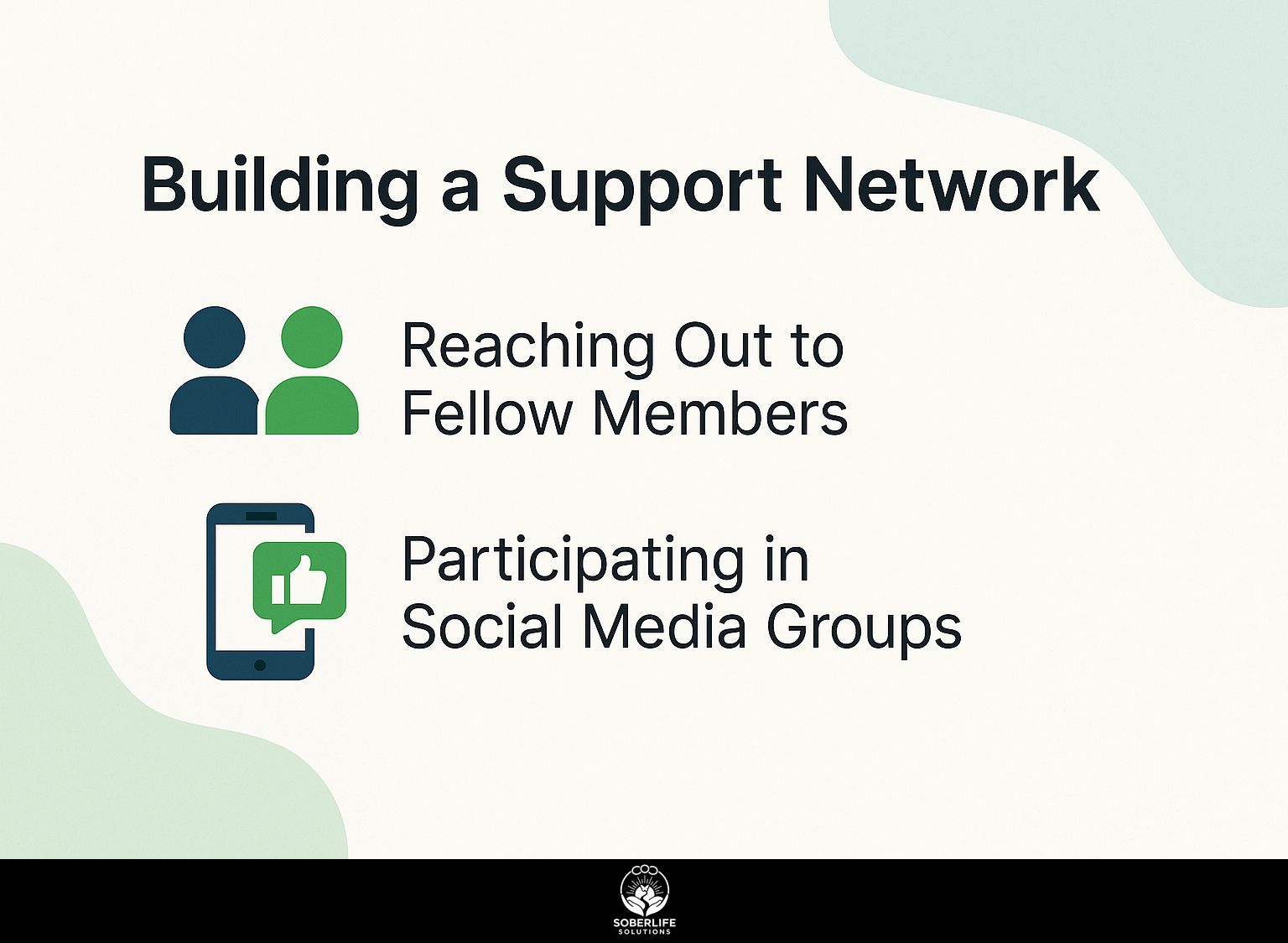
Building a strong support system improves responsibility and inspiration during trips, especially when dealing with difficulties. Discover how sober support systems can be crucial in overcoming these challenges.
Reaching Out to Fellow Members
Meeting with other A.A. members can give you emotional support and help keep you accountable while going through recovery while traveling.
To improve your networking, contact people through email or use apps like WhatsApp.
A simple template message could beHi [Name], I hope you’re doing well! I’d like to chat and talk about our recovery experiences. Would you be open to a chat?”
Make it a habit to check in with at least one person each week for mutual encouragement.
Participating in local online meetings or forums can strengthen your connections, giving you new ideas and shared plans for dealing with difficulties together.
Participating in Social Media Groups
Joining A.A. groups on Facebook can increase participation and offer more help when you are on the move.
Participating in groups such as A.A. Recovery Support or the A.A. Online Community allows members to connect and share experiences. Share your travel problems or achievements, which can attract useful comments.
Consider using the Meetup app to find local A.A. meetings during your travels. This plan helps you stay on track with your program and make new friends and find support groups wherever you are.
It’s important to stay involved with your community to support lasting sobriety.
Maintaining a Routine
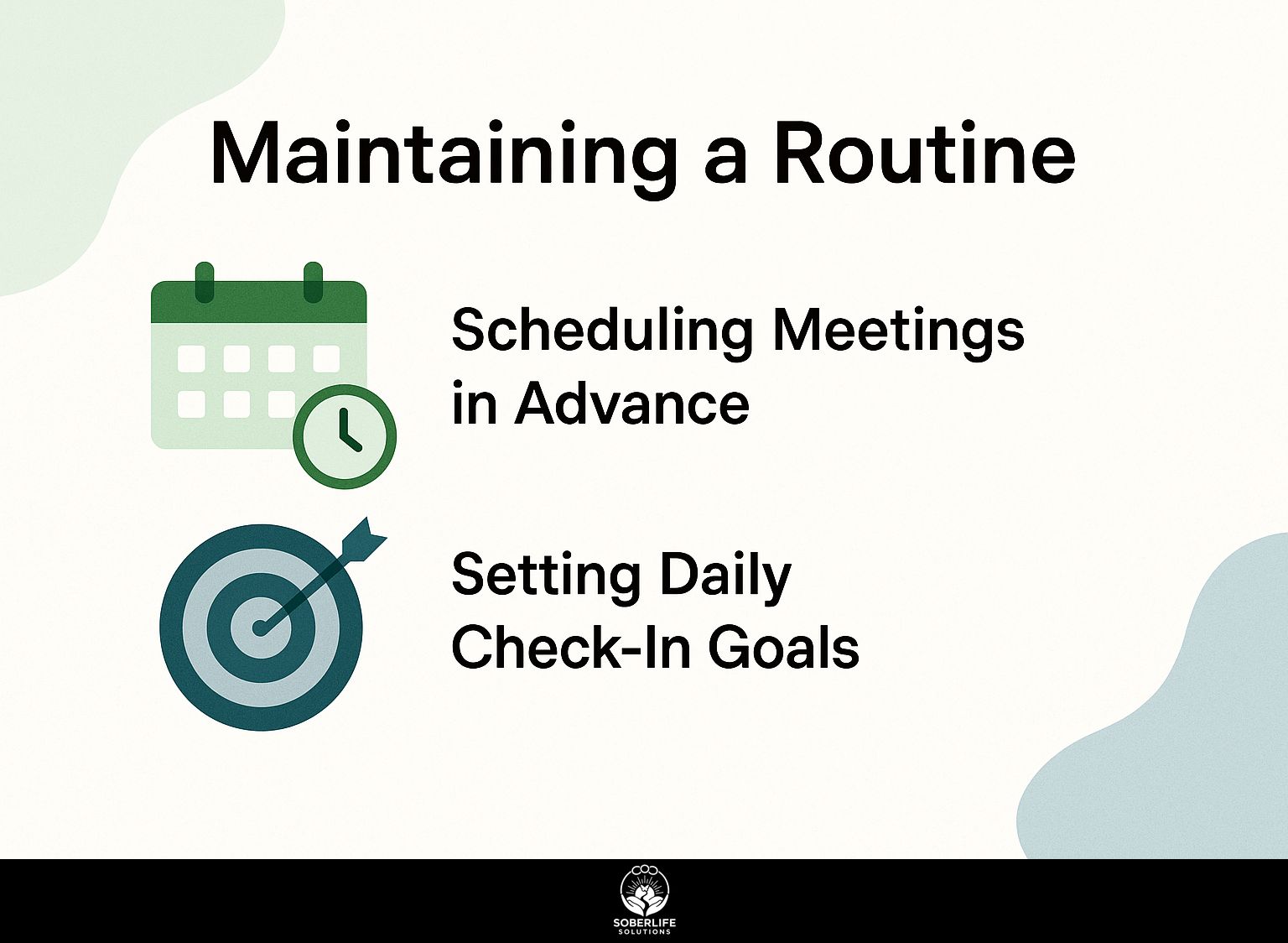
Creating a daily schedule when on the move can help stick to recovery goals and handle things that might cause setbacks. It’s essential to manage emotional challenges effectively-our deep dive into decluttering emotional baggage provides insights into overcoming such hurdles.
Scheduling Meetings in Advance
Planning ahead to attend A.A. meetings can help reinforce commitment to recovery and provide structure during travel.
Start by researching local A.A. groups in your destination city using the A.A. website or the ‘A.A. Meeting Finder’ app, which provides real-time meeting information.
Create a flexible itinerary and list potential meeting times that fit into your travel plans.
Use Google Calendar to set up notifications to help you stay organized. If you can’t find any local A.A. meetings, consider participating in one over the internet.
Regularly attending these meetings can significantly improve your recovery process, helping you stay connected and involved, even when you are not at home.
Setting Daily Check-In Goals
Setting daily check-in goals can help you stay committed to your sobriety while dealing with new situations.
A practical approach to daily check-ins includes specific strategies.
Start by using a sobriety app like Sober Tool or I Am Sober to set daily goals and keep track of them, so you have a clear record of your progress. Next, reach out to an accountability partner for daily or weekly check-ins, creating a supportive network.
Take 10 minutes each evening to reflect on your triggers and successes, possibly using a quick checklist:
- Did I meet my goals today?
- What challenges did I face?
- How can I improve tomorrow?
This reflection encourages steady improvement.
Frequently Asked Questions
How can I stay connected with A.A. meetings while traveling?
To stay connected with A.A. meetings while traveling, you can use the following methods:
- Check the A.A. website or app for meeting listings in the area you are traveling to.
- Contact the local A.A. club or intergroup office for meeting information.
- Reach out to your home A.A. group for recommendations or connections to meetings in the area.
- Attend virtual A.A. meetings through phone or internet if physical meetings are not available.
- Bring A.A. literature with you to read and reflect on during your travels.
- Connect with other A.A. members through social media or online forums to stay in touch and receive support.
What should I do if the area I am traveling to does not have an A.A. meeting?
If there are no A.A. meetings in the area you are traveling to, you can still stay connected with the program by:
- Attending virtual meetings through phone or internet.
- Reaching out to your sponsor or other A.A. members for support and guidance.
- Reading A.A. literature and practicing the principles of the program on your own.
- Connecting with local A.A. members through social media or online forums.
- Attending a neighboring town or city’s A.A. meeting if possible.
Are virtual A.A. meetings as effective as physical meetings?
There isn’t a single answer to this question because people have different experiences with A.A. meetings. Some people may find virtual meetings just as effective as physical meetings, while others may prefer the face-to-face interaction of physical meetings. It’s important to identify what benefits you the most and remain engaged with the program in the manner that best aids your recovery.
How can I prepare for attending A.A. meetings in a new location?
To prepare for attending A.A. meetings in a new location, you can:
- Research the local A.A. community and meeting locations beforehand.
- Reach out to A.A. members in the area for recommendations or support.
- Pack any necessary A.A. literature or materials to bring with you.
- Mentally and emotionally prepare yourself to attend meetings in a new environment.
- Remind yourself that the principles and support of A.A. remain the same no matter where you are.
How can I stay connected with my home A.A. group while traveling?
To stay connected with your home A.A. group while traveling, you can:
- Check in with your home group through phone or email.
- Attend virtual meetings with your home group through phone or internet.
- Stay updated on the group’s events and activities through social media or online platforms.
- Connect with individual members of your home group for support and accountability.
What should I do if I am struggling to find a meeting while traveling?
If you are struggling to find a meeting while traveling, you can:
- Reach out to other A.A. members for support and guidance.
- Use online tools like the A.A. website or app to locate meetings nearby.
- Attend virtual meetings through phone or internet if physical meetings are not available.
- Read A.A. literature and practice the principles of the program on your own.
- Remember that you are not alone and that there is always someone willing to help in the A.A. community.

